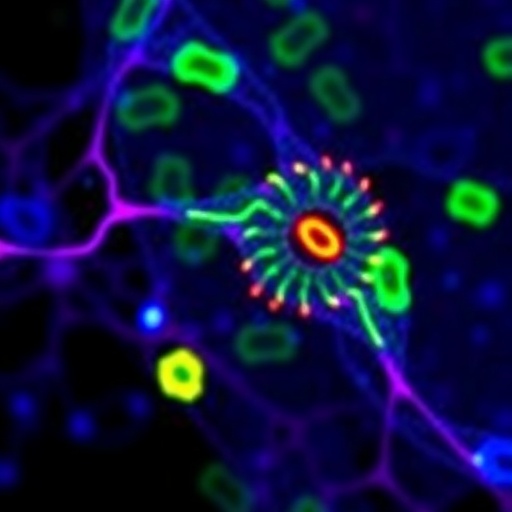In a striking development that has captivated the oncology research community, a recent study exploring the therapeutic potential of taxifolin, a naturally occurring flavonoid, in cancer treatment has been formally retracted. Originally published in the prestigious journal BMC Cancer, the research claimed that taxifolin exerts significant anti-tumor effects by interacting with cell cycle regulators, inducing cell cycle arrest, and promoting tumor regression through activation of the Wnt/β-catenin signaling pathway. This retraction raises important questions about the validity of these findings and their implications for cancer biology and therapeutics.
Taxifolin, known chemically as dihydroquercetin, is a flavonoid widespread in various plants and has been studied extensively for its antioxidant, anti-inflammatory, and anticancer properties. The retracted study proposed a novel mechanism whereby taxifolin manipulates the intricate network of cell cycle proteins to halt the uncontrolled proliferation typical of cancer cells. The central focus was the modulation of Wnt/β-catenin signaling, a pathway critically implicated in cellular proliferation, differentiation, and oncogenesis.
The Wnt/β-catenin pathway is renowned for its dual role in normal developmental processes and cancer progression. Aberrant activation of this pathway has been documented to drive tumor genesis across multiple cancer types. Consequently, targeting this pathway is considered a promising strategy in cancer therapeutics. The original study presented taxifolin as an agent capable of activating this pathway to induce a tumor-suppressive effect, a mechanism seemingly counterintuitive given that Wnt activation often correlates with tumor promotion.
The employ of taxifolin as a cell cycle regulator was underscored by its interaction with critical proteins involved in the cell division cycle. Cell cycle arrest, particularly at checkpoints such as G1/S or G2/M phases, represents a fundamental method by which drugs can halt cancer cell proliferation. According to the initial publication, taxifolin bound selectively to regulatory proteins, initiating a cascade that culminated in cell cycle arrest and apoptosis, thereby inhibiting tumor growth.
Tumor regression observed in vitro and in vivo was a primary highlight of the study, suggesting that taxifolin could transition from a biochemical curiosity to a viable anticancer compound. These findings prompted considerable interest because natural flavonoids like taxifolin are generally well-tolerated and exhibit fewer side effects compared to conventional chemotherapeutics. The prospect of a plant-based compound targeting complex oncogenic pathways offered hope for safer, more effective cancer treatments.
However, the retraction of this paper necessitates a cautious reinterpretation of the data. Retractions of scientific publications often stem from various issues such as methodological errors, data falsification, or irreproducibility of results. While the exact reasons for this particular retraction were not detailed, the implications are clear: the robustness and reliability of the research findings warrant rigorous reevaluation.
This development underscores the critical importance of validation and transparency in biomedical research. The intricate signaling networks governing cancer progression demand precise and reproducible experimentation. When novel therapeutic claims emerge, particularly those implicating major pathways like Wnt/β-catenin, extensive corroborative studies are essential before clinical translation.
Moreover, flavonoids such as taxifolin continue to attract research interest due to their diverse biological activities. Their pleiotropic effects include antioxidant activity, modulation of cell signaling pathways, and influences on gene expression, all of which contribute to their potential utility in cancer therapy. Nevertheless, this retraction highlights the complexities involved in translating in vitro findings to effective clinical interventions.
As the scientific community digests this latest event, it serves as a reminder of the challenges inherent in cancer drug discovery. The interplay between natural compounds and cellular signaling pathways is intricate and sometimes unpredictable. The initial enthusiasm for taxifolin’s role in manipulating cell cycle regulators and triggering tumor regression must now be tempered with rigorous skepticism.
In parallel, researchers and clinicians must continue to explore the Wnt/β-catenin pathway as a therapeutic target, applying rigorous methodologies and employing state-of-the-art technologies such as CRISPR gene editing, high-throughput screening, and advanced imaging to uncover actionable insights. This pathway’s complexity, with its context-dependent oncogenic and tumor-suppressive roles, necessitates nuanced approaches.
The retraction also reflects on the vital role of peer review and post-publication scrutiny in maintaining scientific integrity. Journals and researchers alike bear the responsibility to ensure that published findings withstand the test of reproducibility and methodological rigor. As science is self-correcting, these moments, though unsettling, contribute to advancing knowledge by eliminating flawed hypotheses and redirecting focus.
In conclusion, while the retracted study on taxifolin’s effect on cell cycle regulators and Wnt/β-catenin activation no longer stands as credible evidence, it has nonetheless contributed to the ongoing discourse on natural compounds in cancer therapy. The pursuit of safe, effective, and targeted cancer treatments remains at the forefront of biomedical research, demanding vigilance, skepticism, and innovation.
The retraction serves as a reminder that scientific breakthroughs often emerge from iterative processes involving both pioneering discoveries and critical reassessments. As researchers explore the vast therapeutic potential of flavonoids and intricate cellular pathways, the ultimate goal remains clear: to translate basic science into meaningful clinical advances that improve patient outcomes worldwide.
Subject of Research:
Taxifolin’s interaction with cell cycle regulators and its effect on tumor regression via Wnt/β-catenin signaling pathway.
Article Title:
Retraction Note: Taxifolin, a natural flavonoid interacts with cell cycle regulators causes cell cycle arrest and causes tumor regression by activating Wnt/β-catenin signaling pathway
Article References:
Razak, S., Afsar, T., Ullah, A. et al. Retraction Note: Taxifolin, a natural flavonoid interacts with cell cycle regulators causes cell cycle arrest and causes tumor regression by activating Wnt/β-catenin signaling pathway. BMC Cancer 25, 1598 (2025). https://doi.org/10.1186/s12885-025-15080-1
Image Credits: Scienmag.com




